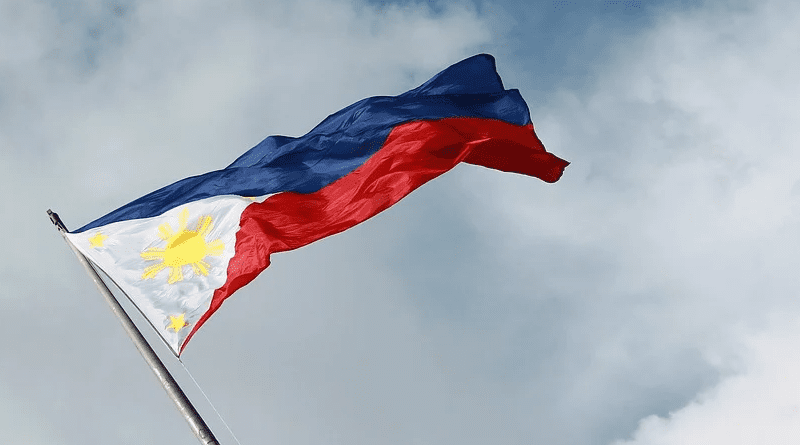Martial Law Was Not A Political Panacea For The Philippines – OpEd
By MISES
By Harald Eustachius Tomintz*
Senator Ferdinand Marcos Jr. has been making headlines lately as the presidential race in the Philippines runs ever closer toward the 2022 elections in May. On the local level, at the time of this writing, he maintains a commanding lead in polls and opinion surveys despite opting out of public debates against other candidates. With overwhelming support behind him, he is currently poised to win the elections and become the next president after Rodrigo Duterte.
To an audience versed in world history, Marcos’s name may come across as familiar. He is perhaps best known for being the son and namesake of the very same dictator who declared martial law in the Philippines back in the 1970s. Marcos brands himself as a changemaker, and in some ways, he promises not to be like his father. It would admittedly be unjust to hold him fully accountable for the sins of another, even if the other person in question is next of kin.
However, any conversations about the various issues during the martial law years under the late President Ferdinand Marcos are often colored by political affiliations or differences in experiences and necessarily affect the direction of the ongoing campaign. Some rightfully decry the elder Marcos’s presidency as a brutal regime plagued by human rights violations, cronyism, and economic lows, while others look back with fond but misplaced nostalgia on what they believe to have been a desirable golden age.
Advocates claiming that the martial law days were a grand time in Filipino history must contend with the fact that economic data does not support this idea. It may be that not every region in the country was equally affected by the policies, leading some individuals in the diverse citizenry to look upon martial law more favorably. To set the record straight, though, martial law was not great for the Philippines, not from an economic perspective nor a humanitarian one.
A discussion paper drafted by economists from the University of the Philippines discusses these topics more closely. Although it is true that the Philippines recorded high economic growth after martial law for at least two years in the 1970s, parsing the data shows those gains did little to prevent what followed. Poverty reached all-time heights, social unrest and hunger were rampant, the purchasing power of the peso fell, incomes shrank, and until the recovery in the early 2000s, it is said that as many as twenty years of potential development were lost under the authoritarian regime.
Economist Jan Carlo Punongbayan succinctly summarized what every Filipino should know concerning the tragic case of the martial law epoch. It was not an economic golden era, life was not comfortable, and crony capitalism and corruption were pervasive. The Philippines did not rise during martial law, so any promise to make it rise again as in those days would be ironic and empty. Filipino incomes lagged behind those of ASEAN (Association of Southeast Asian Nations) neighbors, and national debt soared due to unsustainable borrowing. Evidence of the era’s failure in the country is both convincing and overwhelming.
Naturally, one would be wise to look at such data and statements with a bit of suspicion, as aggregated figures and general proclamations do not always present an accurate view of reality. Yet setting these aside for the sake of argument, martial law in the Philippines was still a historically difficult period that was costly not just in terms of money or economic losses, but also in lives: thousands of Filipinos who resisted or otherwise expressed discontent against the dictatorship were imprisoned, tortured, and killed under deplorable circumstances.
Even in the face of all this data and of these stories regarding the heinous acts that were committed in those years, dubious accounts still proliferate that are evocative or just propaganda. These include sweeping pronouncements about the era, such as the assertion that the Philippines was the second great Asian economic power, behind Japan, and the notion that German cars became as common as taxis on the streets of Manila during that time. The spread of selected nostalgic memories that ultimately lack economic nuance is quite pernicious; it muddles the discourse and contributes to covering up the woes of the day, idealizing what was not at all ideal.
The truth of the matter is that the martial law period was no utopian time. While it may not have had identical or universally comparable repercussions for every Filipino, the constant fear caused by the threat of the force used then, the numerous abuses of highly centralized power, and the decades-long damage to life and livelihoods left in its wake do not justify whatever supposedly positive things happened only to the few or the favored.
Whether or not the upcoming elections result in another Ferdinand Marcos being voted into the highest position in the country, it is not just the task of the son to get out from under the shadow of the father. The country itself must escape the dangerous idea that the heavy hand of a harsh rule is required and appropriate to foster peace and prosperity in the Philippines. Any meaningful change in this perception can only come through open communication that acknowledges and condemns the real horrors of martial law that Filipinos should truly never forget.
*About the author: Harald Eustachius A. Tomintz teaches at the Department of Economics of the Ateneo De Manila University in the Philippines.
Source: This article was published by the MISES Institute

